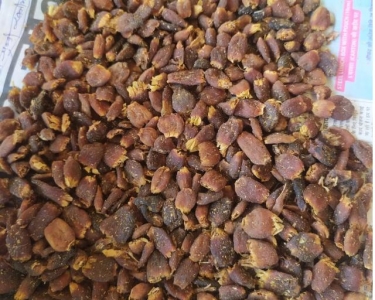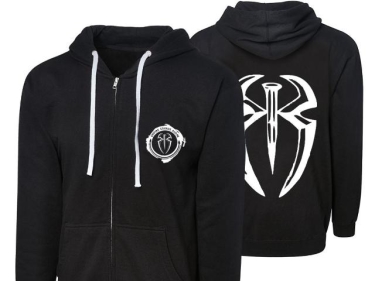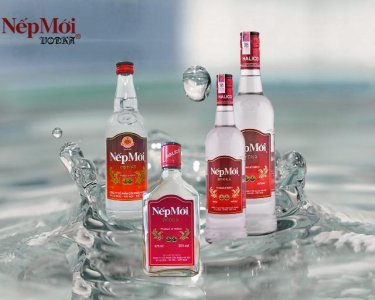Live animals
Couldn't find the product you want?
Fill out this form to request the product.
Products You May Like
Import to Mauritania
Mauritania is located in North West Africa. It bordered by Senegal to the southwest, Mali to the south and east, Algeria to the northeast, Western Sahara to the north and the Atlantic Ocean to the west. The country is divided into four geographical zones. The Saharan zone which accounts for 66% of the country and consists of shifting sand dunes, mountainous plateaux and an occasional oases. The coastal zone which is almost devoid of vegetation. The Sahelian zone with its savannah grasslands and steppes. The Chemama or Senegal River Valley zone which is a narrow belt of land with rich alluvial soil. The only permanent river is the Senegal River with floods often occurring between September and October that cover the whole valley area. Land Use: forested 4%, pastures 38%, agricultural-cultivated 0.5%, desert and other 57.5%. Thus, we see that geographically Mauritania isn't fit to develop a good agricultural structure and is forced to import agricultural products from abroad. The commodities for this country also include equipment, machinery, capital goods, foods, petroleum products, and a variety of consumer goods.
Mauritania's main import partners are the following countries which import merchandise to Mauritania, are:
- United Arab Emirates
- France
- Belgium-Luxembourg
- China
- Netherlands
- Spain
- United States
According to the International Trade Centre, Mauritania main imports, along with percentage of total imports, are:
1. Mineral fuels, petroleum gas, oils, refined petroleum, distillations products, etc.
2. Concentrated milk, tea, foodstuffs, palm oil, rice, cereals, dairy products, eggs, honey, wheat, raw sugar, malt extract and edible animal products.
3. Boilers, rubber tires, nuclear reactors, large construction machines, electric generating sets, construction materials.
4. Vehicles other than railway, cars, stone processing machines, vehicles, delivery trucks, lifting machinery, excavation machinery.
5. Light pure woven cotton, packaged medicaments, woven fabric of synthetic staple fibers.
Export from Mauritania
Mauritania, officially the Islamic Republic of Mauritania, is a country in the Maghreb region of western North Africa. It is the eleventh largest country in Africa, and is bordered by the Atlantic Ocean to the west, by Moroccan-controlled Western Sahara in the north, by Algeria in the northeast, by Mali in the east and southeast, and by Senegal in the southwest. One of Africa's newest oil producers, Mauritania bridges the Arab Maghreb and western sub-Saharan Africa.
The country has limited agrarian resources due to its desert wastes of land, where nothing can be grown, but it contains extensive mineral deposits, most notably it's iron ore but also copper and gold. So, the country has most of its wealth of iron ore deposits and in fact, this accounts for as much as 50% of all Mauritania exports. To be fair, we can add that Mauritania exports and the agriculture industry products, too, but in small proportions. These are some crops that include beans, corn, millet, rapeseed oil, rice, sorghum, sugar, tobacco, and wheat.
Opposed to the inner territories of the country, where anything hardly lives, Mauritania's coastal waters are among the world's richest fishing grounds, and the country benefits from a fishing agreement with the European Union. As a result, Mauritania's main source of foreign revenue comes from exporting fish and iron ore.
Mauritania is one of the least industrialized countries in the world. The few industries involve the production and partial processing of iron ore. There is a fish processing plant and an oil refinery in Nouadhibou and a sugar refinery in Nouakchott as well as a meat processing factory in Kaedi. Traditional crafts are produced in Nouakchott. There is a textile factory in Rosso. Major industries of Mauritania are agriculture, cement, fishing, industrial gas, mining, paints, textiles and it also exports livestock, millet, phosphates and salt.
Iron ore, copper, and fish are sent to the European Union and Japan, and animals are sold to Senegal. There is much informal trade with neighboring African countries. Gum arabic and salt also are sold abroad.
Main trading partners of Mauritania, countries to which Mauritania exports merchandise, are China, Switzerland, Italy, Japan, Germany, France.
According to the International Trade Centre, the top five export categories for Mauritania, along with percentage of total exports, are:
1. Ore, Scrap Iron, Gold, Scrap Aluminium, Scrap Copper, Iron Ore, Copper Ore, slag and ash.
2. Mineral fuels, Crude Petroleum, Refined Petroleum, oils, distillation products, etc.
3. Fish, Fish Oil, crustaceans, molluscs, and aquatic invertebrates.
4. Pearls, precious stones, metals, coins, etc.
5. Commodities, Animal Meal and Pellets, Paper Containers, Sheep Hides, Special Purpose Ships.
Check Out Export Portal: A Site That Lets You Export Live Animals
If you are looking to buy and export animals, then you came to the right place! Export Portal's Live Animals Department is an online marketplace for sellers and buyers of any livestock. We work to contribute to the live export industry, which brings many economic advantages and other benefits to countries that rely heavily on livestock imports. In fact, in just Australia alone, this industry contributes roughly $1.8 billion to the country's GDP each year. Moreover, it also ensures food security while helping people meet their protein needs as well.
Finding the Right Animal
We feature a wide range of pigs, cows, sheep, goats, horses, rabbits and hares, turkeys, bees, and fish for sale. An increasing number of American, Australian, German, South African, Argentinian, and Italian farmers and companies are advertising their livestock with Export Portal, portraying just how effective and helpful our site is.
To help customers make more informed purchasing decisions, our site lets users narrow down their searches by the age, breed, and sex of the animal. If you are feeling hesitant to shop on our site and want more detailed information, make sure to check out our seller ratings and reviews, which are written by our buyers and customers. We also collaborate with hundreds of trusted international shipping companies that arrange the transport of all kinds of animals and birds to any country in the world.
Online Shopping is More Simple with Export Portal
Export Portal is an ideal site for everyone who is an avid online shopper. Our convenient options make it easy to find and buy whatever you are looking for. Our seller network from all over the world has everything you need, and our customer support team will make sure you can find it. Our wide assortment of products will be sure to provide you with the best shopping experience. Make sure to check out our site and items today!
Customs requirements of Mauritania
Customs Contacts:
Telephone: +222253418
Address: Colonel N'Diaga Dieng, Directeur General des Douanes, Boite Postale 198, Nouakchott, Mauritanie
Mauritania is a country with a small population which is located in the continent/region of Africa.
Countries near Mauritania include Western Sahara, Senegal, Mali and Gambia. Mauritania is rich in mineral resources. It is Africa's second biggest exporter of iron ore, it is a modest oil producer with considerable natural gas deposits and its waters have some of the most abundant fish stocks in the world.
Mauritania does not apply specific commercial policy to the different sectors. Restrictions are few and aim first of all to maintain security, public order and health. The country has little recourse to quantitative barriers and import licenses. Non-tariff barriers are often limited to payment delays applied by local banks to providers.Customs Duties and Taxes on Imports20%, Mauritania remains a country with high custom duty tariffs in comparison with its neighbors.
Custom procedures have been simplified, custom duty rates rationalized and the majority of non-tariff measures eliminated. The customs nomenclature corresponds to the harmonized system established by the WTO. All products entering the territory are subject to declaration. These are managed by an informatized system, SYDONIA, and treated on the spot by the Customs offices, except for when they are not informatized, in the case of which they are treated again by the General Customs Direction. Imports in the amount exceeding 5000 USD are controlled by the General Surveillance Society (Société Générale de Surveillance, SGS). The applied custom duty tariffs are ad-valorem taxes.
The evaluation of the value of products is based on transactional value, except for used cars, where the minimal importation value continues to be used. There are three different custom duty rates: normal rate of 20%, minimal rate of 5% applicable to countries benefiting from the Most-favored-nation clause, and a 0% rate applied to certain products, notably those of vital need. Custom duty is progressive according to the level of transformation of the product.
Together with customs duty, the majority of imported products are subjected to statistical tax of 3%. Some agricultural products are also subjected to seasonal levies.
Exonerations and exemptions of customs duty and importation tax, as well as discounts, are sometimes practiced.
The following documents required for imports:
-commercial invoice with the name and address of the buyer and the seller, the date and place where it was written, transport means, quantity, description of merchandise and conditions of delivery and payment.
-bill of landing or a certificate of origin
-inspection certificate, delivered by the Société Générale de Surveillance
Importers require an inspection before shipping and a control of quality. An inspection certificate must be provided for all imported goods.
Sources:
http://www.bbc.com/news/world-africa-13881985
http://www.gomapper.com/travel/where-is/mauritania-located.html
http://www.dhl.com/en/mr/country_profile/import_guidelines_express.html
http://www.movers.com/international_movers/customs-regulations/mauritania.html
https://en.santandertrade.com/international-shipments/mauritania/customs-and-transportation





